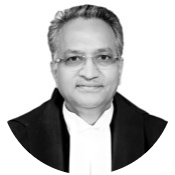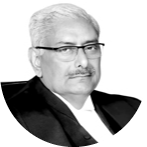Framing of Criminal Charges & Electoral Disqualification
Public Interest Foundation v Union of India
A 5 Judge Bench of the Supreme Court held that a person cannot be disqualified from membership in a legislative body on the mere framing of criminal charges against them.
Decided
Parties
Petitioner: Public Interest Foundation; Common Cause; Transparency International India; Gandhian Seva and Satyagraha Brigade
Lawyers: Dinesh Dwivedi
Respondent: Union of India; Election Commission of India
Lawyers: K.K. Venugopal
Case Details
Case Number: WP (C) 536/2011
Next Hearing:
Last Updated: October 19, 2021
TAGS: Criminal Law, Election
Key Issues
Whether the court can decide additional grounds for disqualifications beyond what is provided in the Representation of Peoples Act, 1951?
Whether the disqualification should be triggered upon conviction or upon the Court framing the charges?
Whether filing false affidavits under the Representation of Peoples Act, 1951 should be a ground of disqualification?
Case Description
On 25th September, the Court delivered its unanimous judgment. It ruled that it did not have the power of disqualification of membership of candidates from legislative bodies upon framing of charges:
- Read the Judgment of the Supreme Court
In 2011, the NGO Public Interest Foundation filed a writ petition in the Supreme Court to expand the grounds for disqualification of membership in Parliament/State Legislatures, under Article 32 of the Constitution. They asked the Court to disqualify candidates and legislators under the Representation of Peoples Act, 1951 (RP Act), who have serious criminal charges framed against them by a court. In addition, they asked the Court to disqualify candidates, who file false affidavits (see Section 33A of RP Act).
Currently, Section 8 of the RP Act deals with disqualification upon conviction, not charge framing, for certain offences. Under the Act, a person convicted for any offence under Sections 8(1), (2) and (3) stands disqualified from the date of conviction. None of these provisions disqualify a person upon framing of charges.
On December 16th 2013, a Division Bench of the Court with the then Chief Justice RM Lodha and Justice Shiva Kirti Singh requested the Law Commission to submit a report on the criminalisation of politics.
The 244th Report of the Law Commission found that due to long delays in the trial process, disqualification at the stage of conviction has been ineffective in curbing the criminalisation of politics. Hence, it recommended that the framing of charges should trigger electoral disqualification as it is judicially supervised and early in the trial process. Further, it recommended that filing a false affidavit under Section 125A of the RP Act should be a ground for disqualification under Section 8(1) of the RP Act.
On 8th March 2016, a Division Bench of three-judges referred the matter to be heard by a Constitution Bench. This Bench rejected the Union’s argument that these questions were already settled by the Constitution Bench in Manoj Narula in 2014. In Manoj Narula, the court chose not to interfere with the Prime Minister’s discretion to choose Ministers, even though some Ministers may be undertrials in pending criminal cases.
On 9th August, 2018, the Constitution Bench began hearing the matter. On 25th September, the Bench delivered its verdict and declined to add further criteria for disqualification under Section 8 of the RP Act, observing that it was not for the Courts but the Legislature to bring about changes to the law. It further urged the Parliament to enact law to ensure that persons facing serious criminal charges were prevented from entering the political stream.





